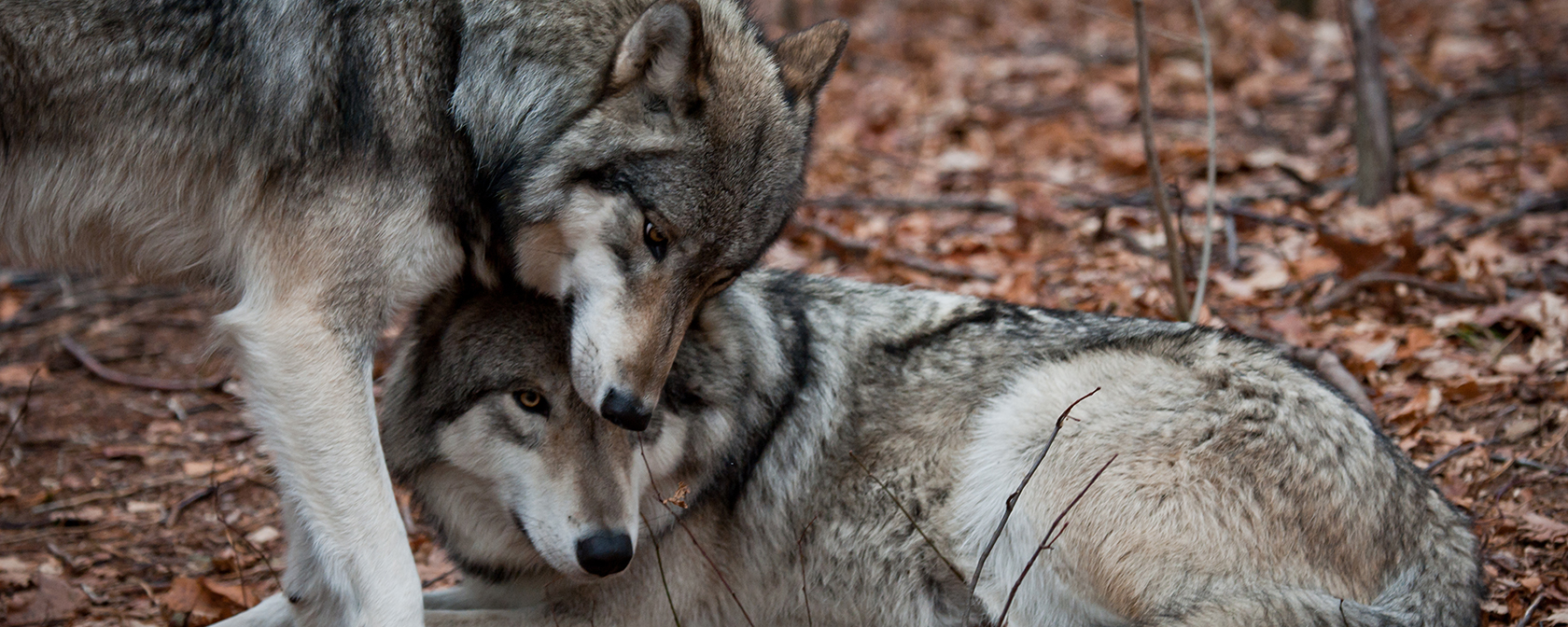By Sara Amundson and Kitty Block
In October last year, the Trump administration stripped federal protections for wolves, giving state managers in the lower 48 states the ability to greenlight trophy hunting and trapping seasons on these animals. Today, the Humane Society of the United States and allies sued the U.S. Fish and Wildlife Service over this illegal and premature decision that is riddled with legal and scientific pitfalls and has the potential to devastate America’s still-recovering wolf population.
The FWS cited “successful recovery efforts” as the reason for delisting. The science, however, shows otherwise: wolves remain threatened nationwide and are, in fact, still absent from 70 percent of the habitat where they once ranged and that could still sustain wolf populations today.
Some wolf populations, such as those on the west coast and in the southern Rocky Mountains, are especially small and vulnerable, and risk disappearing forever because of the delisting decision.
Our lawsuit argues that by treating the plight of these fragile populations as insignificant and ignoring the natural and manmade threats that wolves nationwide still face, the government is in violation of the Endangered Species Act and its legal duty of protecting wolves and helping them recover.
We know wolves don’t stand a chance with wildlife managers in states where they have been historically persecuted. Some of these states had already begun planning the carnage even before the delisting decision was finalized. For instance, members of the Wisconsin Natural Resources Board, a governor-appointed group that sets policy for the state’s Department of Natural Resources, pushed for a wolf hunt to occur immediately upon delisting. They put that plan on hold after we sent them a letter warning such a move would be unscientific and illegal, but still plan to move forward with a hunting and trapping season in the fall.
Michigan and Minnesota have said they will hold off on a wolf trophy hunting season until they update their respective wolf management plans, but trophy hunting, predator control and trapping interests as well as cattle producers are continuing to push for a hunt there as soon as possible.
Wolves dispersing from populations in the Great Lakes and Northern Rocky Mountains regions are critical to recolonizing neighboring areas and ensuring the long-term genetic health of the species by establishing connectivity between the currently disjunct populations. Unfortunately, some of these key states have already declared war on wolves. In a recent statement on the federal delisting, South Dakota Game, Fish and Parks stated it does not support gray wolf expansion in South Dakota. Without federal protections any wolves that disperse into the state in search of a mate or territory can be shot at sight, year-round, by anyone with a state hunting license (landowners on their own land and children under 16 don’t even need a license).
In Utah, before federal delisting, it was state policy to request the immediate removal of any wolves in the parts of the state where they were federally listed as endangered, and to prevent the establishment of a viable pack in the small northern corner of the state where they were not protected. While wolves will now be “allowed to disperse into the state,” it is likely they will continue to face an uphill battle.
It is hard to wrap one’s head around such unbridled antagonism toward and enthusiasm for killing one of our nation’s most iconic carnivores. It was such attitudes that led to wolves, who once roamed across nearly all of North America, including most of the lower 48 states, being relentlessly shot, trapped and poisoned. Wolves had nearly disappeared from the contiguous United States by the early 20th century. After they received federal protections in 1975, their population had slowly begun to crawl back from the brink of extinction. The federal delisting now all but guarantees that progress will be reversed.
This is not the first time we’ve taken the government to court to protect wolves. Since 2003, the government has repeatedly wasted its time and taxpayer funds to pursue a losing argument, dictated by trophy hunters and ranchers, to delist wolves everywhere in the United States based on progress made toward recovery in just a few areas. But courts have consistently rejected this approach, most recently in our precedent-setting 2017 victory at the D.C. Circuit Court of Appeals. We have repeatedly worked with congressional leadership to fight back riders in appropriations vehicles and standalone bills requiring the FWS to delist wolves for many years (there are already attempts in the new Congress to delist wolves that we will be fighting).
The mandate for the FWS couldn’t be clearer: it is charged with conserving and protecting native wildlife. It is time FWS officials do the job Americans hired them to do and protect wolves from those looking to kill them for a thrill. When they choose to do otherwise, we will be here to hold them accountable.
Kitty Block is President and CEO of the Humane Society of the United States.




